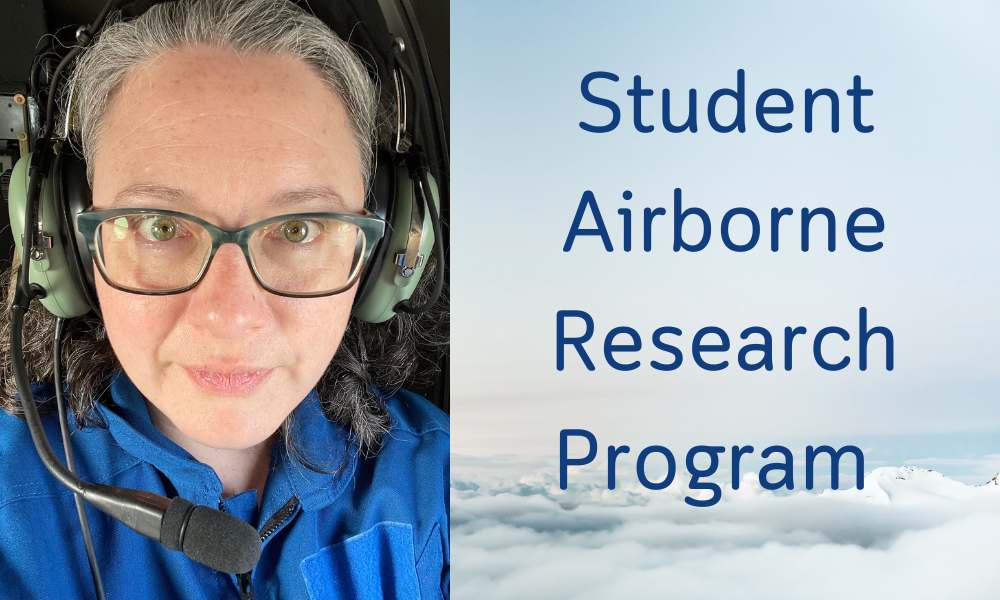Student Airborne Research Program
College of Education
SUMMARY: This past summer Dr. Webb had the opportunity to be a facilitator to NASA’s inaugural year of its East Coast Student Airborne Research Program.
This past summer Dr. Webb had the opportunity to be a facilitator to NASA’s inaugural year of its East Coast Student Airborne Research Program. This program allows undergraduate researchers to engage in authentic, hands-on research alongside NASA scientists and faculty mentors. For two months, undergraduate researchers worked in groups to collect and analyze ground-based, airborne, and NASA satellite data about water quality, soil moisture, ecosystem changes, atmospheric greenhouse and trace gases, and saltwater intrusion and sea level rise. Undergraduate researchers used these integrated observation strategies (ground, airborne and satellite) to engage in an individual research project, guided by faculty and graduate mentors, and complete a group research proposal.
What was the purpose of the SARP program?
The main purpose of SARP is to provide undergraduate researchers from colleges nationwide with a look into what it is truly like to be a field scientist for NASA. Other purposes of the program include answering important questions about topics such as water quality, air quality, and climate change. Based at Christopher Newport University in Newport News, Virginia, SARP-East participants were uniquely positioned to explore these topics in the context of the Chesapeake Bay watershed. In their teams, undergraduate researchers collected data at Virginia Commonwealth University’s Rice Rivers Center and took part in an airborne campaign on research flights out of NASA’s Langley Research Center and a private hangar in Newport News. Through this research conducted by rising college seniors, environmental policy at the local, state, and federal levels will be influenced by the data collected by SARP-East over the next five years on topics including environmental justice, climate change, and public health consequences.
What was Webb’s specific role and goal during this process?
Webb served as the subject matter expert for STEM Education and STEM Identity. Her responsibility in this position was to ensure that undergraduate researchers' learning needs were met through their experiences, shaping their STEM identities. She was specifically chosen for this job because of her expertise in experiential science learning and teacher and student identities in the classroom. Webb joined research groups in the marshes and corn fields at and around the VCU Rice Rivers Center and even went on a flight collecting data on formaldehyde, greenhouse gases and trace gases in the atmosphere.
How does this relate to Webb’s teaching practices?
Webb went into detail about how this program specifically affected her and her new approaches to future classes. It will affect the types of conversations they will have about STEM identities since she now has new knowledge from this experience. She is able to have deeper and more engaging conversations with her students about the nature of science and is able to encompass the history and sociology of it much better. With the understanding that research experiences for teachers are not new, Webb discussed the importance of the opportunity to see how other professionals and mentors interact with undergraduate researchers to engage in the topic of the human impact of science. This opportunity has not only opened her up to new professional development in and outside the classroom but also shaped Webb’s perception of what a scientist is. Although Webb talks with the science teacher candidates in her methods classes about the nature of scientific knowledge and why it matters who does science, she admitted carrying some assumptions into this experience. Since speaking and working with multiple NASA scientists from Langley Research Center and Goddard Space Flight Center, she saw firsthand how they all engaged in science with people and for people. She greatly appreciated the humanizing perspectives of science and scientists shared by the NASA Subject Matter Experts. Along with this, the multiple perspectives of each NASA scientist reminded Webb of the importance of interdisciplinary scientific inquiry carried out by diverse teams — we cannot solve the wicked problems of today and tomorrow without multiple perspectives providing their input and expertise. Different perspectives provide not only different questions but also different, more comprehensive answers.
